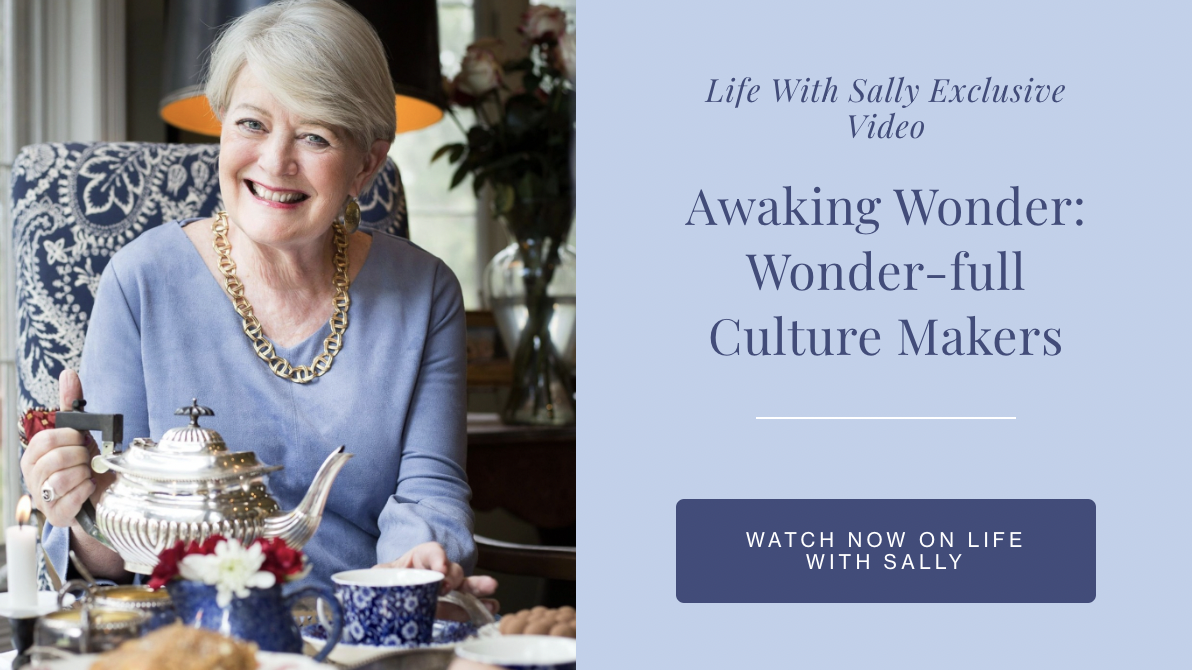The Mission of Motherhood Book Club (Week #4)
During the years that I lived in Vienna, I loved to take walks in the rose gardens of the beautiful eighteenth-century Belvedere Palace, home of the Hapsburgs who ruled the Hungarian Empire. The roses grew prolifically in exquisite shades of pink, red, yellow, gold, and white. The formal layout of the rose beds and walkways was peaceful and soothing. The fragrance from all those flowers was absolutely intoxicating. These gardens were truly works of art.
Many thousands of people have enjoyed the beauty of these gardens over the centuries. And no reasonable person would ever have suggested that they just grew on their own! Those glorious, fragrant gardens resulted from more than two hundred years of careful planning and tending.
Generation after generation of gardeners at the Belvedere Palace worked on the plans for the walkways and rose beds, choosing just the right colors and varieties to suit each section. Year after year they loosened the ground around those bushes and carefully picked out the weeds and harmful insects. Decade after decade they judiciously pruned the plants to encourage growth, built trellises to support and display the climbing varieties, and moved plants as necessary to make sure each rosebush received the optimal amount of sunlight and shadow.
And century after century they paid careful attention to the state of the soil, enriching it with organic matter and applying fertilizer at just the right time. The gardening I've done since those Vienna years has made me more appreciative of those generations of Belvedere gardeners.
What I've learned through my very basic efforts is that a garden without a plan and careful attention will probably grow something. Sometimes it will even show patches of beauty, but it's not likely to grow into the peaceful, productive place I want it to be.
If our gardens need cultivating to grow well, our children need that attention much more. Seeds of excellence and grace must be planted and tended. The weeds of selfishness and bad attitudes must be plucked. The plot must be protected so that the wild storms and prevailing winds of culture will not damage the fruit. In addition, wise food for thought and the finest of art, music, literature, hospitality, and creativity must be fed to fertilize the soul so that the child may grow fruitful and productive.
Children do not accidentally become mature adults of strong character, great faith, gracious relational skills, effective leadership qualities, and sharp intellects. God's design includes the presence of a hands-on gardener, a mother, to tend and cultivate their hearts, souls, minds, and relationships. As a garden cannot flourish without a gardener, neither can a child reach his or her potential without someone committed to careful cultivation. Just as a garden without a gardener will eventually go to seed and be covered over with weeds and debris, a child whose growth is unsupervised or left to chance will likely grow wild and undisciplined or stunted arid unfruitful.
Seeing myself as a gardener is helpful to me as I think of my mission as a mother. After all, I want more for my children than just getting them to adult- hood. I want them to thrive. I want them to grow up confident and civilized. I want them prepared to live as abundantly as possible. For that to happen, I need to do a little intentional "gardening."
This week, we will discuss chapters 7 and 8 in The Mission of Motherhood, where we will discuss what it means to be a gardener of our children’s souls, how to cultivate attitudes of excellence, and what it means to build strong friendships with our children.
This Week's Reading: Chapter 7 and Chapter 8
After you read this week's reading assignment, hop over to the Life With Sally Forum (button below) to join the discussion for our book club! Here is what we will be thinking, discussing, and pondering over on the forum:
Question #1
On Page 154, I write: “The way you tend to your children's lives will depend on your particular interests, skills, and convictions— as well as on the needs and personalities of each child. The overall benefit is that your children will blossom in mind, heart, and soul because you took the time not only to love and protect them but to cultivate their skills, experiences, relationships, and appetites.”
What special interests do you have that you want to pass on to your children? Is there particular art, music, theater, literature, or experiences that shape your own family culture? What special skills or convictions do you hope they will develop? How can you make the atmosphere of your home and your life together match those interests and priorities?
Question #2
On pages 124-137, I discuss the five relationship principles that have served our family as a helpful guide to nurture strong family relationships: 1) Time and Availability, 2) Acceptance and Unconditional Love, 3) Affirmation and Encouragement, 4) Grace, and 5) Relationship Training.
Out of these five principles, which one does your family do particularly well? Which one would you say you have room for growth in? Which principle do each of your children seem to respond best to? How can you incorporate one of these principles in your time together this week?
Question #3
On page 152, I write: “As a person's palate is trained to enjoy the foods he has been accustomed to, our minds tend to prefer those things that where introduced to us at an early age. This is exactly what I was trying to do in exposing our children to quality literature from an early age. Even as I sought to give them appetites for nutritious food so they could be as healthy as possible, I wanted to feed their minds with mental food that would provide them with excellent thoughts but would also cultivate in them a love for what is excellent.”
When it comes to exposure to books, music, and art in your home, would you consider the material to be “true, honorable, pure, lovely, and good” (Philippians 4:8)? Why or why not? Why do you think it’s important to create these standards for our children? What fruit do you think that will bear for their future?





